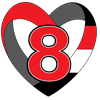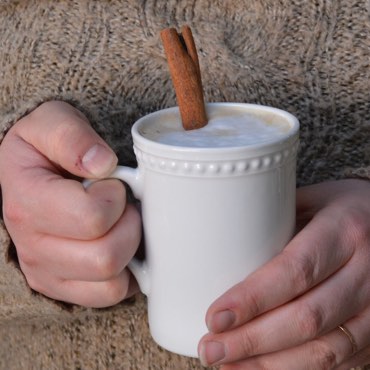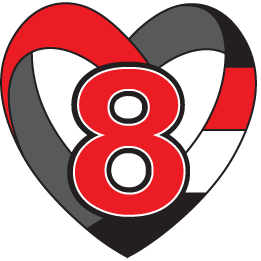
Tips & Tools
Managing your anxiety
Caffeine and Anxiety

 By Eva Fisher
By Eva Fisher
Real talk: it's time to ditch caffeine.
If you think that nothing beats the comfort of a warm cup of coffee in the morning, served in your favourite mug that feels warm in your hands, think again.
Coffee might seem like a calm and comfy way to start your morning, but it's a trojan horse waiting to disturb your sleep, mess with your emotions, and leave you with less energy and maybe even some nasty symptoms to boot.
If you're struggling with anxiety, caffeine is even more problematic. Studies have shown that caffeine can make preexisting anxiety disorders worse and even trigger panic attacks.
But what if you love it? I understand, I love it too. In this article I'm going to get real about what makes caffeine such a problem and offer some suggestions to help you give up caffeine without feeling deprived.
Sleep:
That 9 am coffee may seem innocuous, but did you know that a quarter of that caffeine will still be in your system at 9 pm? Caffeine has a six hour half life, which means that it takes a full 24 hours to work its way out of your system. Just in time to grab another cup.
Caffeine makes it harder to fall asleep, but it also disturbs the quality of our sleep. That means you'll wake up feeling more tired than you would if you had skipped the coffee, and you'll be more prone to grabbing another cup, perpetuating the cycle.
Emotions:
Caffeine releases a surge of adrenaline, which can make it difficult to control our emotions. It triggers a fight or flight response, so we're less likely to stay rational, leaving us vulnerable to anxiety and irritability.
Energy:
Although it seems like caffeine gives us energy, and with all of that wild adrenaline running around in our system we can feel very alert, but as our bodies get used to caffeine it becomes an addiction. You get to the point where you need caffeine to function – otherwise you feel sluggish and bogged down and you may even get a headache or flu-like symptoms. So you reach for a coffee and you feel normal again. But here's the thing: if you weren't addicted to coffee, you wouldn't need it to feel normal. You'd wake up feeling energized.
Depleted minerals:
Caffeine has been shown to deplete your body of Magnesium and B complex vitamins, both of which are important to ward off anxiety.
Psychology Today called Magnesium “the original chill pill,” and studies have shown that it can help to ward off anxiety and depression. Not something that you want to be depleting with caffeine.
Psychology Today also mentions the link between B vitamin deficiency and higher levels of anxiety, confusion, irritability, and depression. I'm confused enough without a cup of coffee, thank you very much.
Breaking the cycle
The problem is that caffeine is everywhere. It's part of a daily ritual for many, and how are we supposed to go for coffee with friends without – coffee?
In the coffee shop try swapping caffeine for:
- Decaf
- Herbal tea (Wouldn't some peppermint tea be nice right about now?)
- Rooibos tea
- Hot apple cider
- Natural energy boosters that won't ultimately make you feel like a pile of sludge
- Drink some water
- Breath deeply and open your eyes widely
- Splash water on your face
- Have a light snack that's high in protein
Sneaky caffeine to avoid:
Medicine: We've found caffeine in medication for colds and allergies, migraines, and pills meant to ease menstrual symptoms. Read the label carefully before taking a medication.
Tea: Yes, most of us know that black tea contains caffeine, but so does green tea, white tea, oolong tea, yerba mate, even matcha. If you're looking for a caffeine free alternative stick to herbal tea, rooibos or fruit tea. *Note - green tea and matcha contain L-theanine which has a calming effect - watch for more on this in a future article*
Soda: According to Caffeine Informer a can of Mountain Dew contains 54 mg of caffeine. A Pepsi has 38 mg, and a Coke has 34 mg. That might seem like it's not a big deal compared to the 163 mg in a cup of coffee, but a fountain drink cup can have almost three times the volume of a can. If you're having it with dinner, that's a big caffeine hit close to bedtime. Cream soda, root beer and ginger ale can sometimes be lower in caffeine, but chances are you'll feel better if you skip the sugar and grab a water.
Chocolate: According to the United States Department of Agriculture a 100 gram bar of dark chocolate contains 43 mg of caffeine, and a milk chocolate bar the same size has 20 mg. If you're serious about kicking caffeine, try white chocolate or carob.
Caffeine free drinks to make at home:
Rooibos Tea Latte:
1 cup milk (or your choice of milk substitute: coconut milk, almond milk, organic soy milk... the choice is yours!)
2 bags or 2 tablespoons of rooibos tea
1/2 cup of water
Sweetener of your choice, if desired
Boil the water and add it to the tea. Let it steep for about 5 minutes until it becomes a deep red.
Meanwhile, put the milk in a mason jar. You will use the mason jar to make your own frothy steamed milk at home. Close the lid and give it a good shake for about 30 seconds. Then heat the milk for 40 seconds. Voila!
If you're going to sweeten your beverage, add the sweetener to the tea before you add the milk.
Then simply pour the milk in. Garnish with a cinnamon stick if you like.
Ginger Cinnamon Tea:
This tea is calming and makes the house smell amazing, even better than fresh ground coffee.
4 slices ginger root
2 cinnamon sticks
About 10 cloves
Add the above ingredients to a small to medium sized pot of water and bring to a low boil for 10-20 minutes.
I hope you've found some inspiration in this article to help you ditch your caffeine habit. For me, limiting caffeine has been key to staying calm and healthy.
The moment of reckoning came at the blood donor clinic. They measured my pulse and found that it was too high to donate. I didn't know why it was so high, I was a little nervous, but that was it. Then they asked me how many cups of coffee I'd had that day. When I added it up, I was surprised to find that I'd had four cups of coffee and a tea. That level of caffeine couldn't be good for my health. So I found alternatives.
Now I want you to try an exercise. Add up how many cups of coffee, tea and soda you had yesterday. Four cups is the absolute maximum intake for a healthy adult recommended by the Mayo Clinic, and less is encouraged. Teenagers shouldn't have more than one cup of coffee a day, according to the American Academy of Pediatrics. If you're having issues with anxiety, it's recommended to cut it out altogether.
It's easy to rely on caffeine as a crutch, but without caffeine you will feel calmer and you will likely have more energy.
About the Author
 Eva Fisher is a writer specializing in food and lifestyle content. In addition to her work with Cam's Kids she is frequently featured on kawarthaNOW. In her spare time she moonlights as a marketing consultant. Her home is in Peterborough, Ontario.
Eva Fisher is a writer specializing in food and lifestyle content. In addition to her work with Cam's Kids she is frequently featured on kawarthaNOW. In her spare time she moonlights as a marketing consultant. Her home is in Peterborough, Ontario.
- All
-
29 Nutrition
Nutrition
- 73 Mindfulness and Relaxation
- 27 Student Life
- 8 Exercise
- 51 Treatments & Therapies
- Anxiety Resources

Don't see what you're looking for? Send us an email!
©Copyright 2024 Cam’s Kids powered by Kids Help Phone
Not-for-Profit Organization. B/N: 921508-5
Thanks for visiting Cam's Kids. Please remember...
Cam's Kids is not a service provider.
If you are in crisis, please call 911 or go to your nearest emergency department. For free, confidential counselling, contact Good2Talk or Kids Help Phone.
Post-secondary students: find your local crisis resource here.

